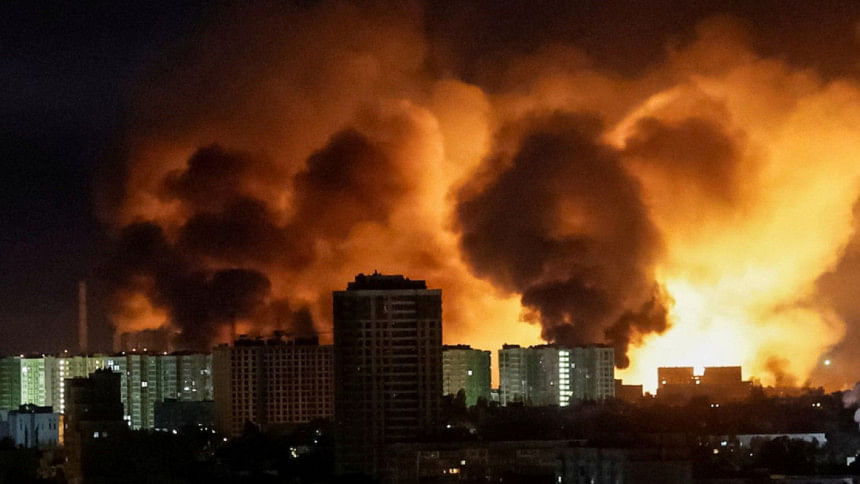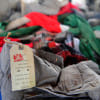Realism isn’t dead in global politics, it just isn’t tweetable

In April 2025, when the USS William P Lawrence, a US Navy warship, sailed through the Taiwan Strait, China dispatched its navy and air force to monitor the ship closely, which served more as a warning. Meanwhile, Russia has been conducting military drills with Belarus as NATO fortifies its eastern flank following the accession of Finland and Sweden. We have not forgotten Operation Rising Lion yet, and the cost of it. These events show a clear pattern: in 2025, countries compete more than they cooperate.
The idea of rules and shared values guiding the world has always been present, but today's global affairs are mostly driven by realism. Realism is the idea that countries mainly seek power, safety, and their self-interest. Realism is not just an old Cold War idea; it helps explain the ongoing competition, distrust, and careful actions that shape world events in 2025. As new powers rise and alliances become stronger, realism is a crucial way to understand how international relations are developing.
Russia and NATO: The security dilemma in action
Realists explain the tension between Russia and NATO as a security dilemma. This simply means that when one country tries to become more powerful, it provokes insecurity in another. Hence, this leads to a cycle of increasing fear and military build-up. Since Finland and Sweden joined NATO in 2023 and 2024, Russia has not only increased its military presence near its western borders, but it has also held more military exercises with Belarus and built closer ties with China. To the West, these actions are aggressive; realism sees Russia's actions as strategic countermeasures within a zero-sum environment.
Russia sees NATO's growth as a threat to its traditional area of influence and its security. Conversely, NATO's troop deployments and military investments respond to perceived Russian aggression. In realism, neither side fully trusts the other, because both have the power to harm the other, even if they make promises not to. This leads to an unstable situation where peace is fragile and power is always being balanced.
US-China rivalry: A struggle for global primacy
The rivalry between the US and China is the biggest power struggle in today's world. In 2025, military tensions in the South China Sea remain high. Both countries frequently send ships and planes to show their power. This extends beyond the military, as countries compete in artificial intelligence, space technology, and computer chips. Both sides are committed to preventing the other from gaining an edge.
According to power transition theory, a realist framework, when a rising power (like China) tries to catch up to a leading power (like the US), conflict or strong competition is almost unavoidable. Though economic interdependence or international institutions may help calm things a little, they don't eliminate the basic struggle for power. Hence, the US-China relationship in 2025 can be best seen as a deliberate power contest driven by survival instinct in an anarchic global system with no central authority to control the world.
Resource competition: Climate crisis as a strategic contest
Though the climate crisis is a unifying global challenge, it is still affected by realist dynamics. The US-China climate talks have stalled as tensions rose over Taiwan and technology restrictions. Both countries accuse each other of using climate issues for political gain. At the same time, developing countries complain that they are not receiving the $100 billion in climate finance promised by rich countries to help them fight climate change. In Europe, concerns over energy security after the Russia-Ukraine war have led countries like Hungary, Italy, Germany, and Poland to delay plans to phase out fossil fuels. Efforts to create fair international climate rules or carbon taxes have also stalled because countries fear such measures might hurt their economies. In April, China restricted exports of heavy rare earths, which are essential for making products like electric cars and wind turbines. These complex dynamics show how climate change is now part of global power competition.
Realism reminds us that in a world without a global governing authority, states prioritise survival and strategic advantage, even in addressing global threats. Climate change thus becomes a new arena of geopolitical competition.
Strategic alliances and rivalries in the Middle East
Middle Eastern diplomacy in 2025 clearly shows how realism works in global politics. The region's geopolitics are not based on shared values but grounded in common interest. For example, the Abraham Accords have expanded, and Saudi Arabia is carefully balancing its ties with both the US and China. These moves are mostly about protecting themselves from threats, especially Iran's growing power in the region. Saudi Arabia is buying weapons from the US, Canada, Spain, and other European countries and many of these are being used to bomb Iranian-backed Houthis in Yemen. It is a huge humanitarian crisis because the bombings are killing not only the Houthis but also innocent civilians. Yet, Saudi Arabia faces no obstacles in buying weapons because, from a realist perspective, the countries selling them are benefitting financially. What value do humanitarian considerations hold here?
The tensions between Israel, Iran, and the US also reflect this power struggle. Iran continues to develop its nuclear programme and supports armed groups in other countries. This has made Israel feel threatened, and the US, losing its strong grip in the Middle East, has taken both public and covert steps to defend its allies. The result was Israel launching Operation Rising Lion; Iran responded with Operation True Promise 3. The US, out of nowhere, launched Operation Midnight Hammer. The world was introduced to some fancy military operation names, but the cost was the injury and death of thousands of civilians, many of whom had absolutely nothing to do with any of it. Iran's threat to block the Strait of Hormuz, raising concerns over global energy security, helped in stopping the war.
The US remains deeply invested in the region to deter Iran's expansion while maintaining complex ties with Gulf allies. This triangle is driven less by ideology and more by calculations of security, survival, and regional dominance.
Iran's deepening partnerships with Russia and China are strategies to avoid isolation and gain leverage in a multipolar order. This explains the self-help system of the realist worldview, where survival depends on forming temporary coalitions as an outcome of cost-benefit calculations. In the Middle East, despite years of rhetoric about democracy, the superpowers seem to be using the region as a stage for security and power plays.
The limits of idealism: Institutions without power
The idea that global organisations like the United Nations (UN) and the World Trade Organization (WTO) can help countries work together is, of course, a liberal idea. Hence, there is reason to wonder why these organisations frequently fail. From the realist perspective, their failure is inevitable. These global organisations do not have real power on their own; they rely on strong countries to support them. But when national interest comes first, cooperation becomes weak and easily breaks down, especially when powerful countries are competing.
If the current trend teaches us anything, it is that global politics are largely driven by power and national interest, where democracy, humanitarian crises, and human rights are often nothing more than convenient terms and an eyewash. This doesn't mean countries can't work together or care about any values, but to really understand what's going on, we have to look at how countries perceive threats and try to stay safe.
Realism doesn't offer false hope, but it helps us see the world as it really is. In the uncertain and tense world of 2025, that honest view might be the best guide we have.
Md Sohrab Hossen is senior officer of Inquiry at BRAC. He can be reached at [email protected].
Views expressed in this article are the author's own.
Follow The Daily Star Opinion on Facebook for the latest opinions, commentaries and analyses by experts and professionals. To contribute your article or letter to The Daily Star Opinion, see our guidelines for submission.

 For all latest news, follow The Daily Star's Google News channel.
For all latest news, follow The Daily Star's Google News channel. 











Comments